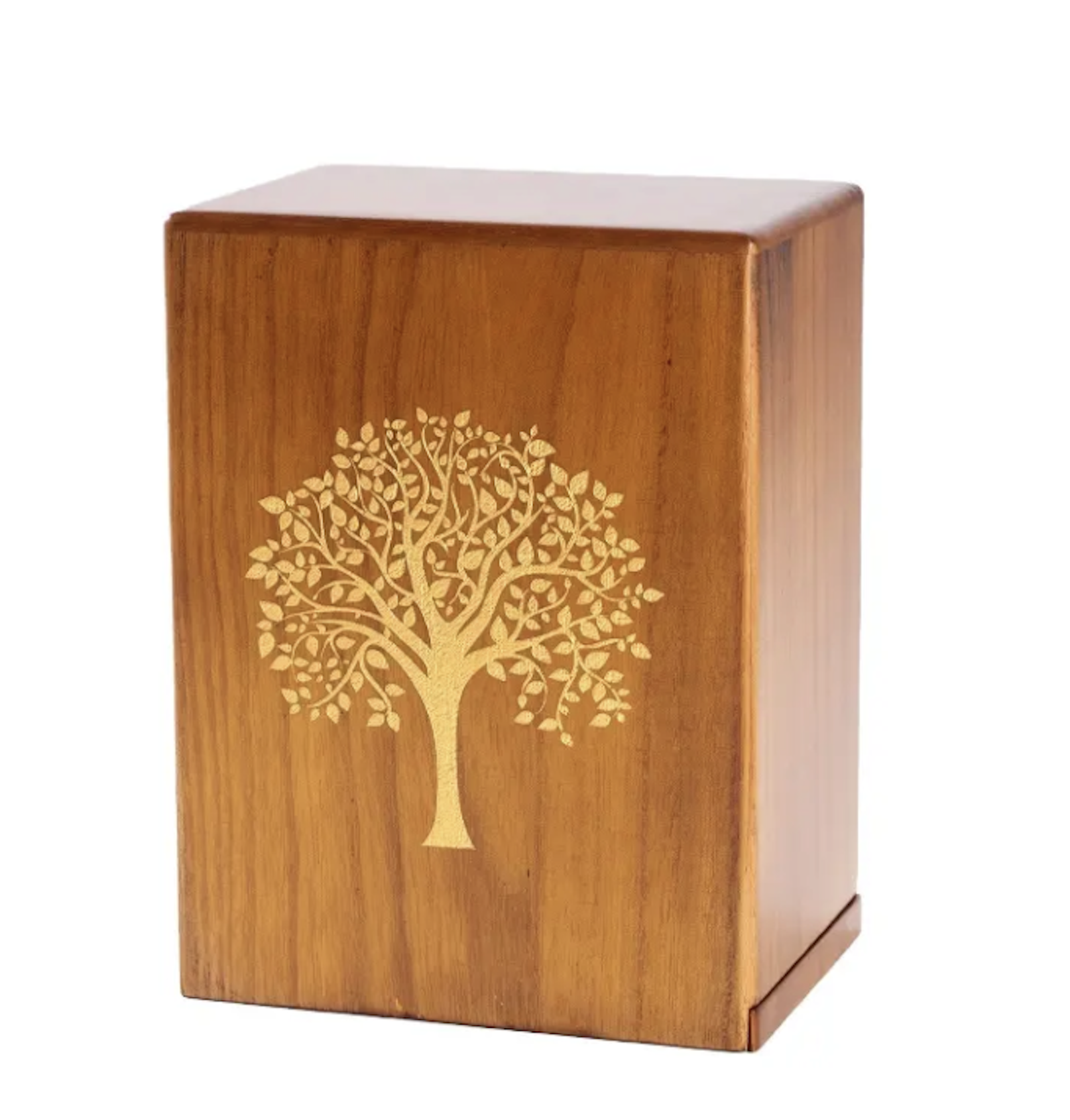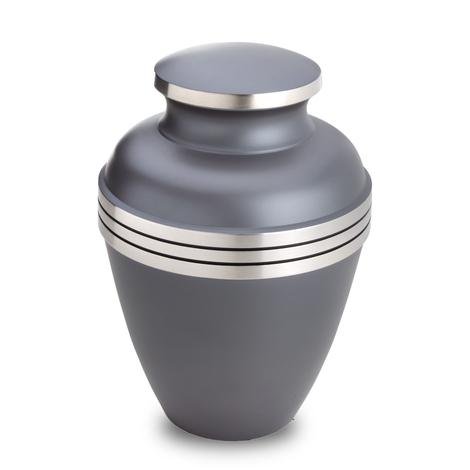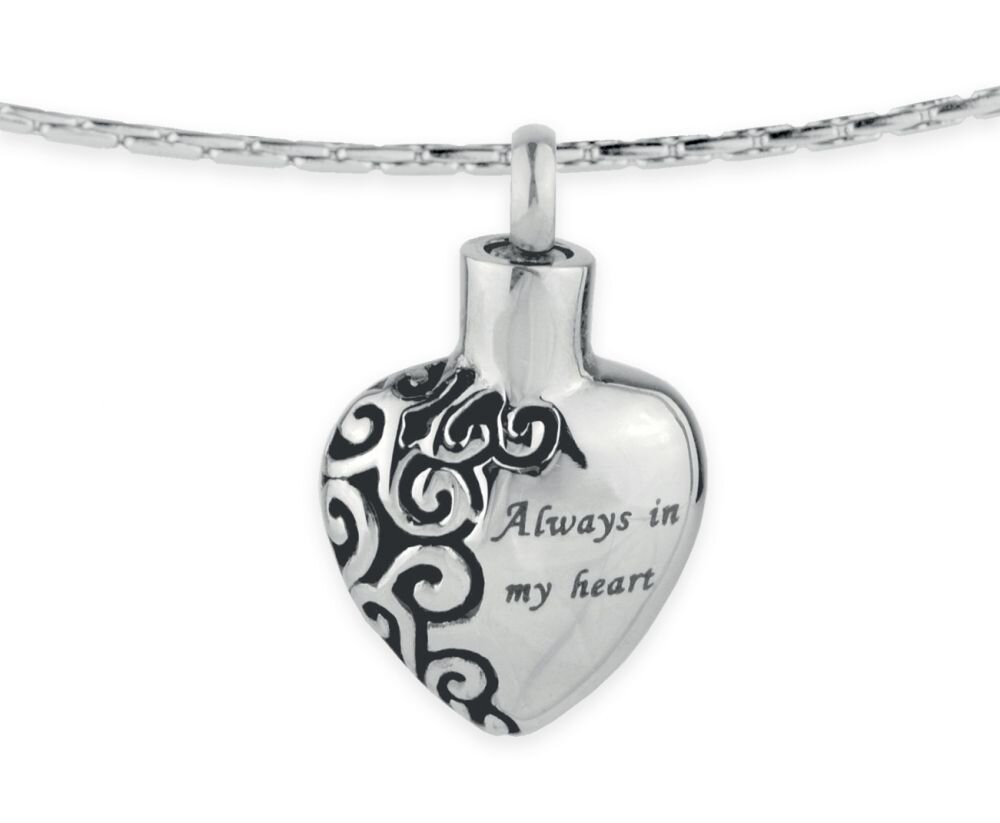
Simple yet Significant
For those looking to keep things “Simple”…
Passages is dedicated to making a difficult time a little bit easier. As such, each cremation package includes:
All essential products and services. No hidden fees, no surprises
Arrangements can be made in person or easily online
A full estate package with unlimited Death Certificates
“Best in Class” compassionate and professional service - see what others have been saying here
Services can be arranged any time online or in person with an appointment.
For immediate assistance, please call
365 833 0052
Paulownia Classic
Paulownia Tree of Life
Cherry Laminate
Additional Urns
Keepsake Jewellery
Call 365 833 0052 for immediate assistance with Cremation Services
Frequently Asked Questions:
What is cremation?
Cremation is the process of reducing the body to ashes and bone fragments. This is done either through the use of intense heat, or through a newer process called Alkaline Hydrolysis (also known as Aqua / Water Cremation or Resomation).
What is a “Simple” or “Direct” Cremation?
Simple or Direct cremation is an option available to families who are looking for a basic, dignified solution after a loved one has passed that results in the cremated remains being returned to the family. A direct cremation involves minimal body preparation, placement of the decedent within a cremation container, and following the cremation, the cremated remains are placed in a simple package and returned to the family.
Who can authorize a cremation?
If the decedent has left written instructions regarding their disposition upon death, the written instructions must be followed. In the absence of written instructions, there is a hierarchy of responsible parties who may select cremation as the form of disposition. This hierarchy is as follows: spouse, adult child, parent, sibling and then the related next of kin.
Can we still hold a funeral service or other event to honor our loved one’s memory?
Absolutely! We work with many families who choose to hold a traditional visitation with or without viewing, a formal memorial service, or both prior to or following cremation. We would be pleased to assist you at every step of planning a personalized remembrance including non-traditional alternatives, which can be held in a wide variety of venues —restaurants, museums, outdoor spaces to name just a few.
What kind of clothing is appropriate for cremation? Can flowers or other objects be placed with the decedent?
Family traditions, religious customs, and personal preferences sometimes call for the decedent to be clothed in a certain way or accompanied by flowers or memorabilia—including ceremonial or personal items such as a watch, a teddy bear, a favourite pillow or blanket for example. Passages offers as much choice as possible, including placement of items with the decedent prior to cremation or dressing the decedent in ceremonial, religious, ethnic, or other attire prior to cremation.
What are the options for disposition of the cremated remains?
The choices regarding what to do with the cremated remains are almost endless. They may be placed in a cemetery or memorial garden either in a niche within a columbarium or buried in the earth (see explanations below). Sometimes the cremated remains are scattered outdoors. Some families and individuals prefer to retain them in an urn, a box, specially designed jewellery, or other containment vessel.
Do we have to purchase an urn?
The purchase of an urn is your choice. Cremated remains are returned in what is called a “temporary container” that is perfectly suitable for scattering or for holding until a final decision about disposition is made. If you choose an urn, we offer a number of options, including highly personalized examples and specially designed jewellery.
Why do people choose cremation?
Cremation is an ancient ritual that has been practiced in different cultures for over 17,000 years. However, in Canada and the United States we’ve really only seen a significant uptake in the last 50 years. There’s a very strong trend toward more families choosing cremation and the reasons for this are quite varied, including (but not limited to):
Price – Generally seen as the less expensive option to a traditional burial, some choose cremation as a means to reduce the financial burden left to their family or estate
Cultural Considerations – In Canada, we have an amazing diversity of people and cultures, many of which have historically chosen cremation as a preferred method of disposition.
Environmental Concerns – Cremation is generally viewed as more of an “earth friendly” option when it comes to end of life care vs burial. This is mainly due to having both the casket and formaldehyde-based chemicals being placed in the ground as well as the reduced space available in urban centres. However, it’s important to note that the cremation process itself is not without footprint. Maintaining the intense heat requires significant fuel, releases carbon dioxide and potentially present chemicals such as mercury into the air. Fortunately, increased regulations and emerging technology are helping to reduce those emissions.
Is embalming required?
Provided the decedent is being cremated or buried in Ontario, embalming is not required. However, in some circumstances (such as out of province or country travel), embalming may be a pre-requisite.
Is a casket required for cremation?
A casket is not required for cremation. However, Ontario law does require that prior to cremation the individual must be placed in a minimum standard cremation container, which resembles a corrugated box with particle board base. If desired, families may choose other cremation caskets specially designed for the purpose.
Are cremation and the traditional Catholic approach to memorializing a loved one compatible?
Although the Pope approved cremation as a form of disposition in 1963, some Catholics are still unfamiliar with or uncertain about cremation. Some seek formal reassurance that cremation is an acceptable form of disposition and are heartened to learn that many Catholic families choose cremation for loved ones.
Can you divide the cremated remains?
Yes. Upon request, we can divide cremated remains into different urns or containers for burial, scattering or keepsake jewellery etc.
What if we’re undecided about what to do with the cremated remains?
Waiting to decide is always an option, and not unusual. Rushing or feeling pressured could result in a less than comfortable choice. We’re happy to discuss those options to help you make an informed decision – either now, next month, or even next year.





